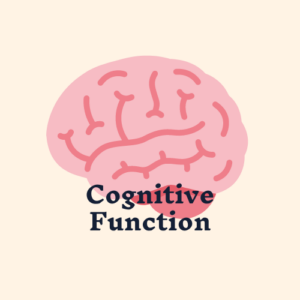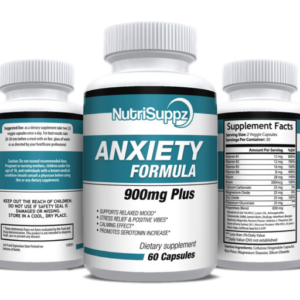28 Aug The Connection Between Cognitive Function and Anxiety
The Connection Between Cognitive Function and Anxiety

Anxiety is more than just a fleeting feeling of unease; it can significantly impact cognitive function, affecting how we think, remember, and process information. This blog post explores the intricate relationship between cognitive function and anxiety, offering insights into how anxiety influences our mental processes and practical strategies to improve cognitive health.
Understanding Cognitive Function
Cognitive function refers to a range of mental processes that include attention, memory, problem-solving, and executive function. These processes are essential for daily functioning and overall quality of life. Cognitive function allows us to plan, make decisions, and interact with the world effectively.
How Anxiety Impacts Cognitive Function
Anxiety can profoundly affect cognitive function in several ways. One of the primary ways anxiety interferes with cognitive processes is through its impact on attention and concentration. When an individual is anxious, their mind is often preoccupied with worry, which can make it difficult to focus on tasks at hand.
Anxiety also affects memory. High levels of stress and anxiety can impair the ability to encode new information and retrieve previously learned material. This can result in forgetfulness and difficulties in learning new concepts. Furthermore, anxiety can disrupt executive functions such as planning and decision-making, leading to indecisiveness and poor problem-solving abilities.
The Role of Stress Hormones
The impact of anxiety on cognitive function is partly mediated by stress hormones, such as cortisol. Chronic anxiety can lead to elevated cortisol levels, which in turn affect brain regions involved in memory and cognitive processing, such as the hippocampus and prefrontal cortex. Prolonged exposure to high cortisol levels can lead to cognitive deficits and hinder overall brain function.
Strategies to Improve Cognitive Function and Manage Anxiety
Addressing the cognitive impact of anxiety involves a multi-faceted approach. Firstly, practicing stress-reducing techniques such as mindfulness and meditation can help manage anxiety levels and improve concentration. These techniques promote relaxation and help to shift the focus away from constant worry.
Regular physical exercise is another effective strategy. Exercise has been shown to reduce anxiety and improve cognitive function by increasing blood flow to the brain and promoting the release of neurotransmitters that support mental clarity and focus.
Additionally, maintaining a balanced diet that supports brain health is crucial. Nutrient-rich foods, such as those high in omega-3 fatty acids, antioxidants, and vitamins, can help enhance cognitive function and support overall mental well-being.
Seeking professional support can also be beneficial. Cognitive-behavioral therapy (CBT) and other therapeutic approaches can help individuals manage anxiety more effectively and develop strategies to cope with cognitive challenges.
The Importance of a Holistic Approach
Improving cognitive function in the context of anxiety requires a holistic approach that addresses both mental and physical health. By incorporating stress management techniques, regular exercise, a balanced diet, and professional support, individuals can mitigate the cognitive effects of anxiety and enhance their overall quality of life.
At NutriSuppz, we are committed to providing resources and solutions that support mental well-being and cognitive health. Explore our range of products and tools designed to help you manage anxiety and support optimal cognitive function.
The Connection Between Cognitive Function and Anxiety



No Comments